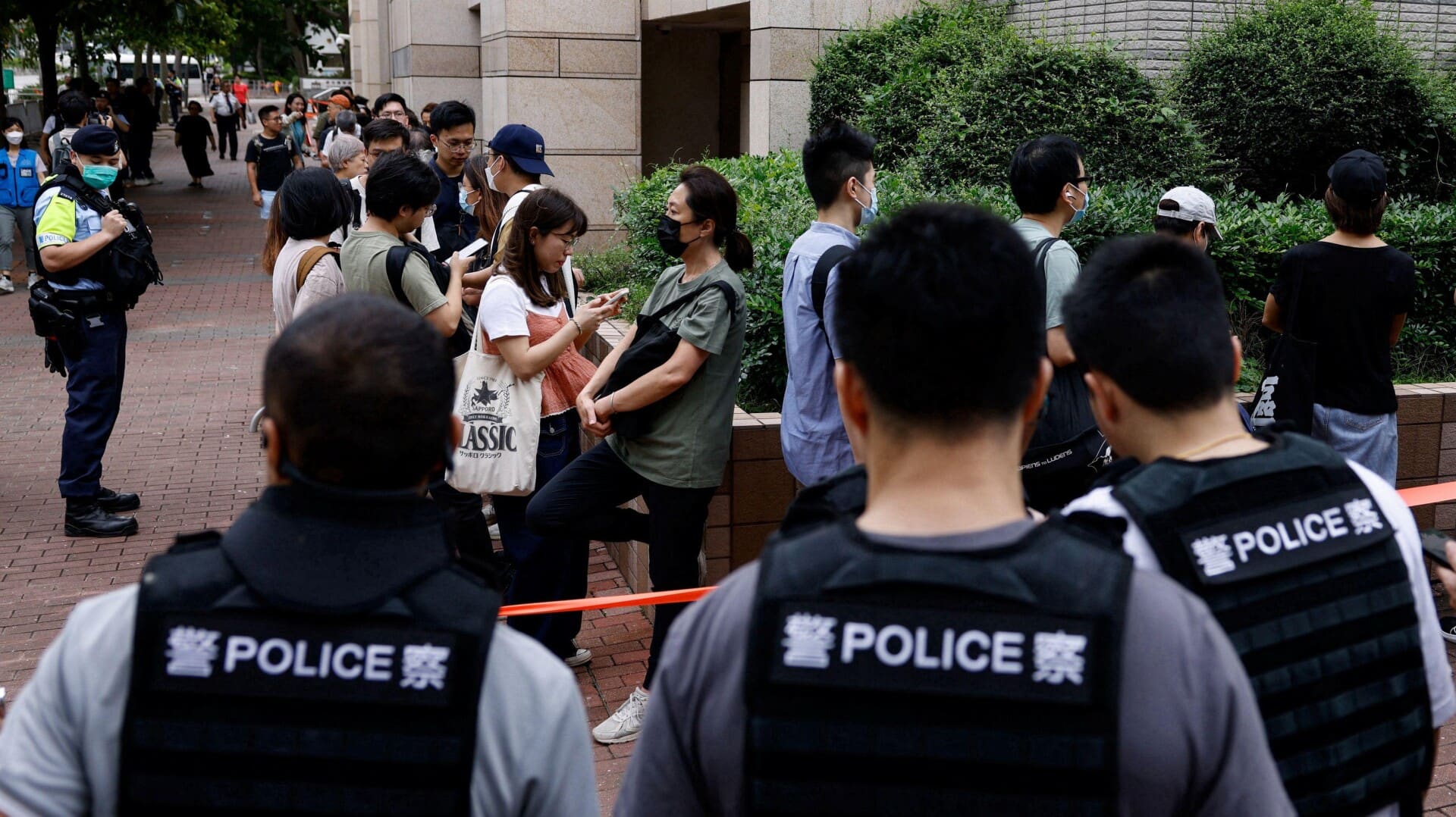
Over 40 Hong Kong pro-democracy figures sentenced to prison
What's the story
Over 40 prominent pro-democracy figures in Hong Kong were handed prison terms of up to 10 years on Tuesday. This is the latest and most significant escalation in Beijing's crackdown on dissent in the city. Among those sentenced was former student leader Joshua Wong, who shouted "I love Hong Kong" as he exited the dock. The sentences, ranging from 50 months to 10 years, were handed under the national security law imposed by Beijing four years ago.
Trial details
Key figures and charges in Hong Kong's mass trial
The trial is the largest single prosecution under this law, which was enacted after pro-democracy protests in 2019. Benny Tai, a legal scholar dubbed the "mastermind," received the longest sentence of 10 years. Wong was sentenced to 4 years and 8 months. Other prominent figures include Gwyneth Ho (7 years), Leung Kwok-hung (6 years, 9 months), and Claudia Mo (4 years, 2 months). The defendants were charged with "conspiracy to commit subversion" for organizing an unofficial primary election in 2020.
Global reaction
International condemnation and local support for defendants
The trial has attracted global attention and condemnation from human rights groups and foreign governments. The United States condemned the sentences in the strongest terms and called for the release of political prisoners. Many of the sentenced have already spent over three years in detention. On Tuesday morning, over 300 people queued outside the West Kowloon court to support the defendants. Police maintained a heavy presence and searched prominent activists.
Political shift
Transformation of Hong Kong's political landscape
Hong Kong's political landscape has changed since the national security law came into effect in 2020. Most pro-democracy voices are now either imprisoned or in exile, with several civil groups disbanded and media outlets closed down. Beijing has revamped Hong Kong's political system to ensure only "patriots" can contest for office. The Hong Kong and Beijing governments defend the national security law as restoring stability after 2019's protests. However, Western nations argue it suppresses peaceful dissent.
Electoral changes
Changes to Hong Kong's electoral system and legislature
Hong Kong's current legislature now comprises mostly pro-Beijing loyalists after the city changed its electoral system. Citizens can only directly vote for a handful of lawmakers, while others are elected by pro-Beijing groups or vetted for patriotism. Protests have largely died down in Hong Kong, once a hotbed of demonstrations for various causes. Last month, a former minister hinted some tolerance for protests could improve Hong Kong's international reputation. However, city leader John Lee dismissed the idea.